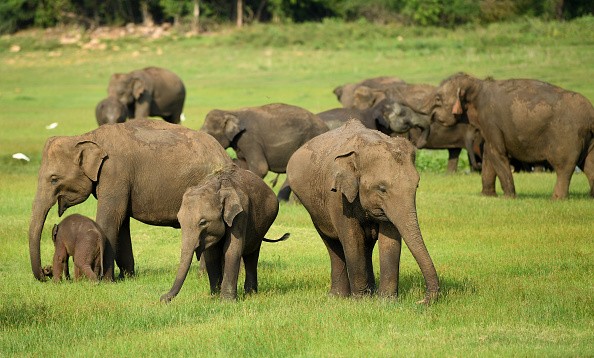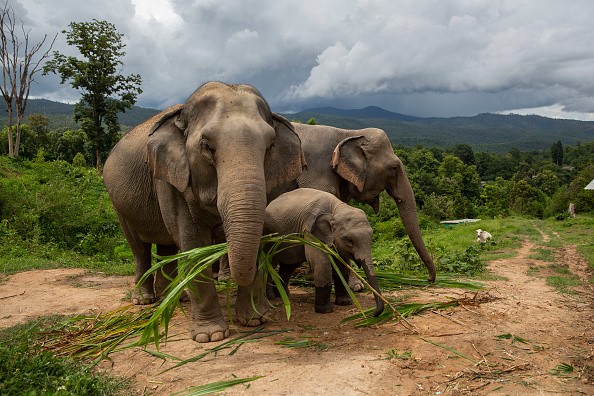Conservationists say exploratory project in Namibia and Botswana is a threat to ecosystems, wildlife, and local communities.

Latest Threat to Elephants
Tens of thousands of African elephants are under menace from plans for a massive new oilfield in one of the last great wildernesses in the continent, experts have warned. Conservationists and campaigners are afraid that the proposed oilfield stretching across Botswana and Namibia would lead to the devastation of regional ecosystems, wildlife, and local communities.
The plans are the latest threat to elephants in the area, hundreds of which have mysteriously passed away in the past year. Researchers are making efforts to discover the cause of the deaths but believe they may be associated with an increasing amount of toxic algae - brought about by global heating - in their waterholes.
Rosemary Alles from Global March for Rhinos and Elephants said: "It is incomprehensible that ReconAfrica's hunt for fossil fuels is pressing ahead, in Africa fewer than 450,000 elephants survive, down from millions not too long ago: 130,000 of these have established this place as a home range, and ReconAfrica's misbegotten plans keep them at direct risk."
ReconAfrica
A Canadian oil and gas company - ReconAfrica, listed on stock exchanges in Canada, Germany, and the US has leased over 34,000sq km of land in the Kavango Basin. Seismic exploratory work has started, and experts disclose that the new oil field could be among the biggest of recent years.
ReconAfrica gave an estimation that the "potential oil generated" could be between 60 billion and 120 billion barrels - and its value will be equivalent to billions of dollars to the regional economy. Only exploratory licences had so far been granted which did not permit any production operations, the Namibian government said. It said the exploratory wells were not found in any "conservancy or environmentally sensitive region and will have no remarkable impact on our wildlife".
But environmentalists, scientists, and local communities say the project could threaten critical water supplies and jeopardize the Okavango Delta in Botswana, a great pristine wilderness and World Heritage Site.

Human-elephant Conflict
Director at the Health of Mother Earth Foundation and chair of Oilwatch Africa, Nnimmo Bassey said: "Every element of this operation - from new roads to drilling location, refineries to terminals - will destroy the ecosystem and the local communities that rely on it for farming and fishing."
Alles said vibrations coming from exploratory work usually disturb elephants, and the increase in construction, roads and traffic would not just chase the animals away but also open the region up to poachers.
Alles added saying they steer clear of places where there is any human activity, loud sound and what they see as danger, mostly when they have juvenile. This can chase them away from their early migratory routes and nearer to villages and agricultural regions, causing more human-elephant conflict.
Related Article : Will Namibia's Elephant Auction Really Improve Conservation of the Critically Endangered Specie?
For more news, updates about elephants and similar topics don't forget to follow Nature World News!
© 2025 NatureWorldNews.com All rights reserved. Do not reproduce without permission.





